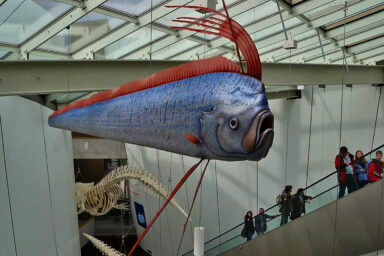Climate Crisis Inflicting Huge Hidden Costs on Mental Health
FBI Analyst Charged With Removing Classified Documents for Over a Decade ; Hundreds of PPP Loans Went to Fake Farms in Absurd Places ; and More Picks 5/26
PICKS are stories from many sources, selected by our editors or recommended by our readers because they are important, surprising, troubling, enlightening, inspiring, or amusing. They appear on our site and in our daily newsletter. Please send suggested articles, videos, podcasts, etc. to picks@whowhatwhy.org.
‘Astonishing’: FBI Analyst Charged With Removing Classified Documents for Over a Decade (Mili)
The author writes, “An FBI intelligence analyst has been charged with removing caches of classified documents, including sensitive information on government informants and national defense, for more than a decade and storing them at her home. The indictment unsealed against Kendra Kingsbury, 48, of Dodge City, Kansas, charged her with two counts of unauthorized possession of national defense documents. The charges did not include allegations that the analyst had shared the information. Kingsbury is scheduled for arraignment June 1 in Kansas City, Missouri.”
Republicans Eye New House Majority Through Redistricting (Sean)
From The Hill: “Republican state legislators see this year’s decennial redistricting process as a prime opportunity to gain House seats in next year’s midterms — with some believing those gains alone can help the GOP take back the majority. Legislators are preparing for the most public redistricting process in American history. Both Democrats and Republicans stand ready to accuse each other of radical gerrymandering, while advances in technology give each side the chance to draw ideal districts that are both pleasing to the eye and politically favorable.”
Hundreds of PPP Loans Went to Fake Farms in Absurd Places (DonkeyHotey)
The authors write, “The shoreline communities of Ocean County, New Jersey, are a summertime getaway for throngs of urbanites, lined with vacation homes and ice cream parlors. Not exactly pastoral — which is odd, considering dozens of Paycheck Protection Program loans to supposed farms that flowed into the beach towns last year. As the first round of the federal government’s relief program for small businesses wound down last summer, ‘Ritter Wheat Club’ and ‘Deely Nuts,’ ostensibly a wheat farm and a tree nut farm, each got $20,833, the maximum amount available for sole proprietorships. ‘Tomato Cramber,’ up the coast in Brielle, got $12,739, while ‘Seaweed Bleiman’ in Manahawkin got $19,957. None of these entities exist in New Jersey’s business records, and the owners of the homes at which they are purportedly located expressed surprise when contacted by ProPublica.”
Cuban Artists Ask Museum of Fine Arts to Remove Their Work From Display While Luis Manuel Otero Alcántara Remains in Government Custody (Dan)
From the Art Newspaper: “Cuban artists aligned with the artist and activist group 27N have asked Jorge Fernández, the director of the Museum of Fine Arts in Havana, to remove their works from display as a form of protest against the treatment of Luis Manuel Otero Alcántara. The artist, 27N member, and founder of the San Isidro Movement, was forcibly taken from his home in early May to Havana’s General Calixto Garcia university hospital by Cuban security forces, ending an eight-day hunger strike against the government’s restrictions on artistic freedom.”
The Sad Case of the Million Bees Left to Die (Reader Steve)
The author writes, “More than a million bees destined for New England beekeepers were left on a hot UPS truck for weeks, according to reporting from the CBS News I-Team. Unfortunately, most of the bees did not survive. In a statement shared with Boston.com, UPS wrote that it is ‘not accurate’ that the bees were kept in a truck for weeks, but when asked for a description of what did happen, the office did not provide further information.”
Brain Implants Let Paralyzed Man Write on a Screen Using Thoughts Alone (Dana)
The author writes, “Humans have long been fascinated with the idea of someone or something that can read our minds — be it a telepath, a computer or Santa Claus. Now scientists say they’ve developed a system that combines machine learning and a brain-computer interface, or BCI, to read handwriting that takes place in the brain rather than on paper. A team of scientists worked with a 65-year-old man paralyzed from the neck down, using sensors implanted in his brain to detect neural activity linked to writing by hand. As the volunteer imagined writing letters, that activity was fed to an algorithm that translated it, in real time, to text displayed on a screen.”



